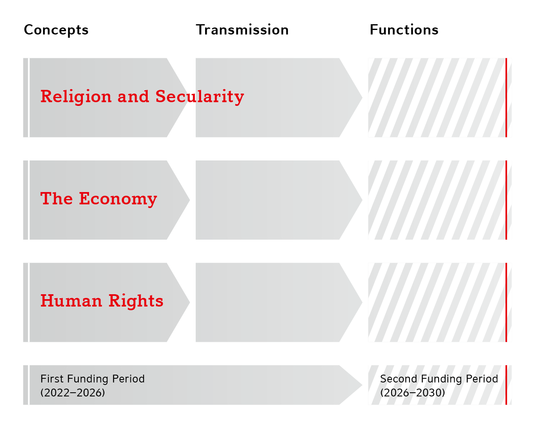Research
The KFG investigates universalist and particularist models of order in European contemporary history from the 1970s to the present. Universalist claims aim to validate universally applicable rules. However, demands for such rules usually grow out of concrete interests. In contrast, particularist models reject any general claim and justify guiding principles that are oriented towards the construction of individual or group-related needs. The KFG research program asks how universalist and particularist claims were constructed in contemporary history and investigates the ways these claims helped conceptualize, justify, promote, or even prevent socio-political change.
Research Areas
The KFG research agenda consists of three areas:
which are being investigated in a three-step sequence: (1) identification and analysis of universalist and particularist concepts, (2) their transmission and (3) their functions.

Interdisciplinarity
The KFG is headed by three scholars who represent contemporary history (Andreas Wirsching), European history (Kiran Klaus Patel), and Eastern European history (Martin Schulze Wessel). This constellation of scholars enables the KFG to examine the history of Western and Eastern Europe in its global context.
The KFG pursues a theoretical program grounded in an intensive dialogue between historians and social scientists. Distinguished Fellows Marta Bucholc (sociology), Alexander Libman (political science), and Angelika Nußberger (law) thus play a key role in the framework of the KFG. The KFG intends to discuss concepts of historical and social science research in terms of their potential for analyzing recent contemporary history.

